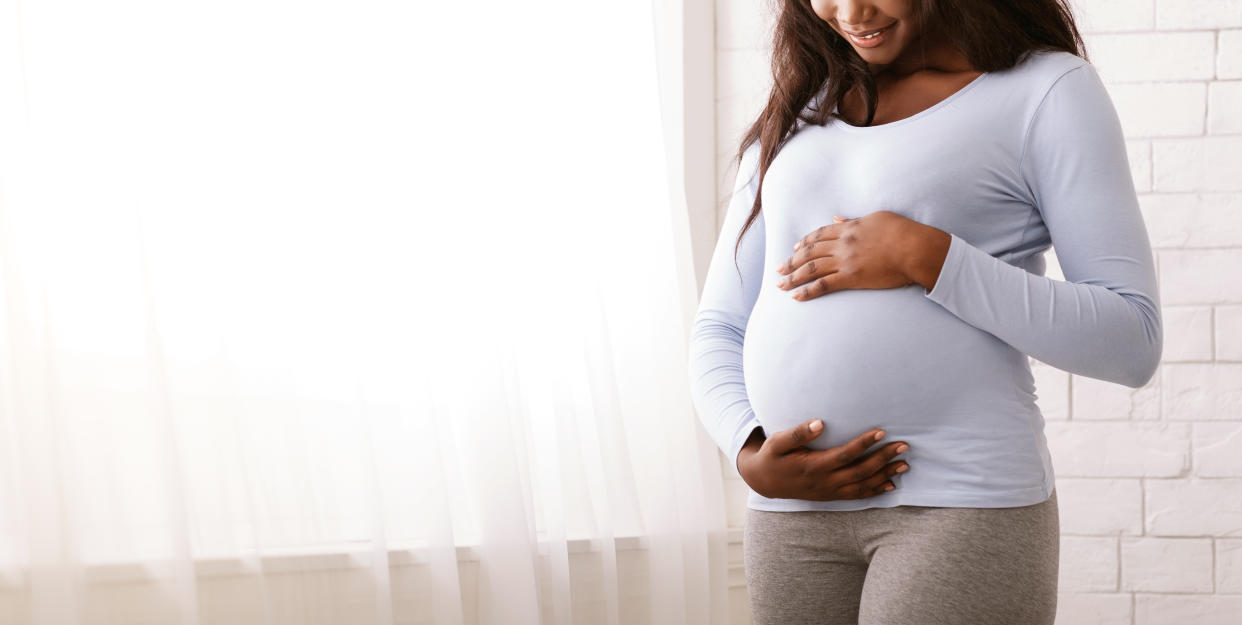Energy drinks during pregnancy nearly double risk of stillbirth, study suggests

Consuming energy drinks during pregnancy may raise a woman’s risk of a stillbirth, research suggests.
Stillbirths, when a baby dies after 24 weeks in the womb, affect around one in every 250 pregnancies in the UK.
While smoking and alcohol have long been linked to a heightened risk, scientists from the charity Tommy’s Maternal and Fetal Health Research Centre at the University of Manchester felt the evidence around caffeine was rather muddled.
They therefore analysed the caffeine consumption of more than 1,000 mothers across 41 UK hospitals between 2014 and 2016.
Read more: No coffee safe in pregnancy, scientist warns
Results suggest the women who consumed energy drinks while pregnant were 1.85 times more likely to endure a stillbirth. Instant coffee and cola were found to raise the risk by 1.34 and 1.23 times, respectively. It is unclear how much of these drinks the women consumed.
Caffeine crosses the placenta, exposing a foetus to similar levels to those circulating in the mother’s bloodstream. Unlike adults, developing babies lack the enzyme produced by the liver to break caffeine down.

“Caffeine has been in our diets for a long time, and, as with many things we like to eat and drink, large amounts can be harmful, especially during pregnancy,” said study author Professor Alexander Heazell.
“It’s a relatively small risk, so people shouldn’t be worried about the occasional cup of coffee, but it’s a risk this research suggests many aren’t aware of.
“Anyone planning to have a baby needs to know consuming caffeine during pregnancy can raise the risk of stillbirth and other pregnancy complications, so it’s important to cut down as much as you can.”
The NHS advises pregnant women to keep their daily caffeine intake below 200mg, around two mugs of instant coffee.
Read more: Two cups of filtered coffee a day could slash risk of type 2 diabetes
“The national guidelines should be the limit, not the goal, and the more you can cut down beyond that the better,” said Professor Heazell.
“Breaking habits can be hard, but little things like switching to decaf and swapping fizzy drinks for fruit juice or squash can really help reduce the risk.”
Excessive caffeine intake has also been linked to a greater risk of a miscarriage or low birth weight.
A can of cola is thought to contain around 40mg of caffeine. A standard 250ml can of energy drink can have up to 80mg of caffeine, rising to 160mg in larger cans.
It is unclear why the results suggest energy drinks pose a bigger risk than instant coffee.
Watch: John Legend thanks fans after wife Chrissy Teigen’s stillbirth
Four in five (80%) people in the UK are said to drink coffee. Perhaps surprisingly, the Tommy’s research suggests one in 20 pregnant women increase their caffeine consumption while expecting.
Tea was the participants’ main source of caffeine. Due to its relatively low caffeine levels, around 75mg per 350ml, this was not found to pose a significant risk.
Filtered or decaffeinated coffee, chai, green tea and hot chocolate were also not linked to stillbirths, according to the results published in the European Journal of Obstetrics and Gynaecology.
While cola consumption was found to raise the risk, the scientists stressed they could not separate the impact of the drink’s caffeine content from its sugar and chemicals.
Read more: Coffee may help OCD patients control urges
“Caffeine intake can be really confusing, even as someone with a background in nutrition,” said Charlotte Stirling-Reed, registered nutritionist and mother-of-two.
“It can be hard to work out the amounts consumed, and many people just aren’t aware of how much caffeine is in some of their favourite foods and drinks.
“All mums want the best for their baby during pregnancy and beyond, so anything that can be done to help break down the guidance and give practical tips on why and how to cut down is really important.”
A pregnant woman can measure her caffeine consumption via Tommy’s calculator.
The UK’s stillbirth rate is the 24th highest out of 49 developed countries, with the government aiming to halve the number of fatalities by 2025.
“Eight babies are stillborn every day in the UK, and the reasons often have nothing to do with diet and lifestyle,” said Jane Brewin, Tommy’s CEO.
“We know there are some things we can do to reduce the risk of this tragedy, so communicating these latest research findings as widely as possible is a vital part of our mission to save babies’ lives.
“This study found midwives and internet resources had the most impact on pregnant women’s caffeine consumption, so we need to make better use of their influence to support mothers throughout their pregnancy journey.”
In August, a scientist from Reykjavik University claimed no amount of coffee was safe during pregnancy.
Not everyone was convinced, however, with other experts calling the research “overly alarmist” and “of questionable significance”.
Watch: Biomarkers used to prevent stillbirth detected


